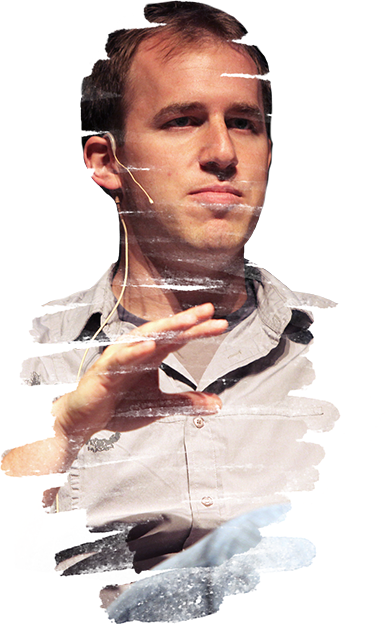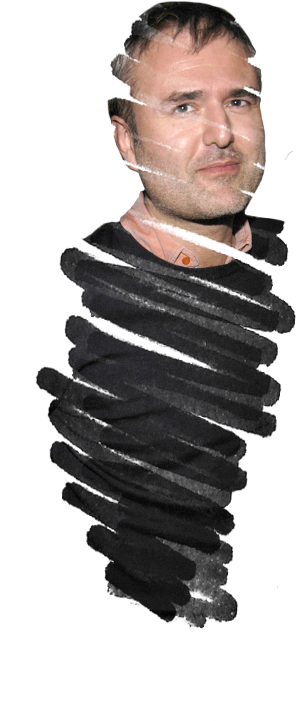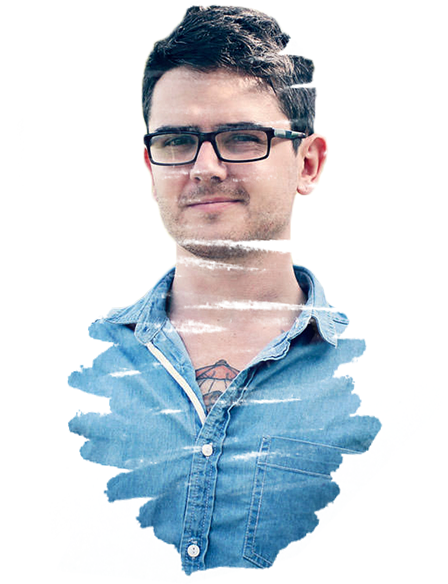These innovators are doing extraordinary things that are transforming the landscape of new media.
The world is changing — and changing fast — as we switch from waiting for a TV channel to air our favorite show each week and reading hard copy newspapers delivered daily to an everything-on-demand, all-the-time, anywhere-we-want-it world.
Just as blogging changed the publishing world a decade ago, a new generation of creators is changing the way we consume everything, from the TV shows we watch and how we watch them to how we create and share content — as well as the form that content is taking. Here are some media innovators we're watching with interest right now.
Bret Taylor

The word processor is one of the most important pieces of software on your computer and was one of the things that started the whole computing revolution in the first place. Even so, people still keep coming back to try and improve it. The latest is Quip, a company founded by Bret Taylor and Kevin Gibbs.
If Taylor's name sounds familiar, it's because he has been involved in shaping the modern Internet for some time. A group product manager at Google, he co-created Google Maps and its API before going on to become chief technology officer at Facebook.
Now at Quip, he is making a difference in how we write by enhancing and making collaboration easier. It's all very simple. Quip lets you share documents with other devices and other people, and at the same time allows you to talk with people within the document rather than having to run a separate messaging service simultaneously. With a number of cool features, it has the potential to change the way we work on documents forever.
Ted Sarandos

Netflix is just for streaming old episodes of Breaking Bad, right? Wrong. It's quickly becoming a major player in Hollywood, and one that is making traditional media companies and broadcasters sit up and listen.
That's partly thanks to Ted Sarandos, Netflix chief content officer, who is commissioning new shows such as House of Cards and Orange Is the New Black, and even changing up the way we watch television by letting viewers watch all the episodes at once rather than eke them out over a series of weeks.
The gamble of commissioning the next season before even getting viewer feedback seems to be paying off. Netflix-produced shows picked up 14 Emmy nominations and subscriber numbers are up.
Chad hurley & Steve CHen

Not content with simply having changed the way we create video and share our lives on YouTube, the pair are at it again trying to reinvent YouTube — this time for a social networking–savvy audience.
The duo's latest project is MixBit, an app and video-sharing site that, similar to Instagram and Vine, lets you capture and share up to 16 seconds of video. MixBit is different, however, in that users can then stitch together up to 256 MixBit recordings to make one hour-long video.
If you don't understand why, then it's clearly not for you, but with clip video gathering steam and being used by early adopters and celebrities alike, the pair could be on track to replicate their YouTube success story all over again, as well as change the way we share video online forever.
baratunde thurston

Former director of digital for The Onion, Baratunde Thurston was the wit behind @TheOnion, the hilarious 5 million+ strong Twitter account for the website. His book, How To Be Black, is a New York Times bestseller, and his his latest venture, Cultivated Wit, brings together comedy writers, designers, artists and others to create interesting projects with comedy at their heart, including Comedy Hack Days and Whiskey Friday nights. Make sure you sign up for Section 4: "The most secretive secret Section 4 Secret Society ever to secretly exist in Section 4." Genius.
Michelle You

As music plays a bigger and bigger part in the way we enjoy life, trying to track when your favorite band is playing has become harder and harder. Enter Michelle You and Songkick, a London-based start-up that lets you track your favorite bands, see what bands your mates are tracking and much, much more. You set up the music company with co-founders Ian Hogarth and Pete Smith, but she is the company's chief product officer pushing what comes next.
astro teller

When someone believes that "making the world a better place" is the best business plan you can have, you have to wonder just how bonkers they are. It’s okay, though. The aptly named Astro Teller is paid by Google to think as creatively as he can, working in the company's highly secretive X division.
Dubbed the Captain of Moonshots, Teller’s projects — the ones we know about — include self-driving cars, Internet service via balloons and Google Glass. "Here is the surprising truth: It’s often easier to make something 10 times better than it is to make it 10 percent better," Teller says.
Google Glass has the potential to change the way we view information. Whether it's a success or not, its inventor certainly has the power to change the way we perceive things we don't even know about yet.
Peter Molyneux

British game mastermind, Peter Molyneux, is single-handedly responsibly for virtually every God game you've ever played, whether he made it or not.
With hits including Populous, Black & White and Fable already under his belt, Molyneux is now turning his creative gaze to the smartphone and tablet to power the next wave of games he creates.
The latest release this October, is Godus, another God game that has the power to potentially change the way we play games. The focus is on a more relaxing game style that makes you want to come back for more rather than the aggressive adrenaline-filled gaming found on consoles.
If Molyneux gets it right, the tablet could be the true gaming platform of tomorrow rather than the new wave of next-generation consoles from Microsoft and Sony.
nick denton

Journalistic content can only be written by trained professionals with years of experience in a certain industry. That's what many believe, but not Denton who has slowly changed his Gawker Media sites, including Gizmodo, Gawker and Jalopnik, into a living, breathing community created by paid and unpaid contributors.
The crux of Denton's disruptive streak is the company's Kinja platform that lets anyone not only file a story to the company's websites but even rewrite headlines.
"Publishing should be a collaboration between authors and their smartest readers — and at some point the distinction should become meaningless," Denton says.
The result? Some of the site's best stories are coming from contributors rather than paid staff. If you're a journalist, it's time to up your game.
Jeff Bezos

When Amazon founder Jeff Bezos isn't salvaging Apollo rockets from the ocean, he is buying The Washington Post and investing in Business Insider. That's Bezos in a nutshell, really. And these endeavors are quickly earning the media mogul and entrepreneur a Citizen Kane moniker as he slowly changes the way that we consume content.
Whether it’s refining the way we read books (via the Kindle), the way we shop (via the electronic catalogue Kindle Fire — Amazon research shows that people who own a Kindle Fire actually shop at Amazon more), or even the way we watch movies (with LOVEFiLM), it's clear Amazon is trying to change and disrupt the media business in whatever way it can.
John o’nolan

Anyone who can launch a free, open-source blogging platform and still raise almost £200,000 through Kickstarter is worthy of being on this list. That's exactly what O’Nolan is doing. Bored of building blogging platforms for Microsoft, Virgin Atlantic, Nokia, Easyjet and Wordpress, O’Nolan set about creating his own platform that anyone can use for free.
Keeping things simple, Ghost doesn't aim to be a website CMS or anything above its station. Instead, it’s a blogging platform that lets bloggers do just that without getting in the way.
What makes this different from the dozens of other offerings out there is that it has been designed for people who want to write rather than have to worry about coding. This is Twitter, Facebook and Tumblr but with teeth.
Jon lax

Teehan + Lax is the design agency behind Evan Williams' Medium, a new platform designed and created for long-form journalism among other things.
Medium, a sort of long-form Tumblr for serious thinkers — rather than another White Men Wearing Google Glass — is the new platform of choice for many people interested in sharing ideas in the same way academics used to with published journals.
What's different about the platform, aside from its clean design and incredibly minimal interface, is that readers can comment on individual paragraphs rather than only at the bottom of the page.
Medium is just one of the success stories of the company founded in 2002. Another gem in the Teehan + Lax stable includes Readability, a reading app that turns any Web page into a clean view for reading now or later on your computer, smartphone or tablet.
